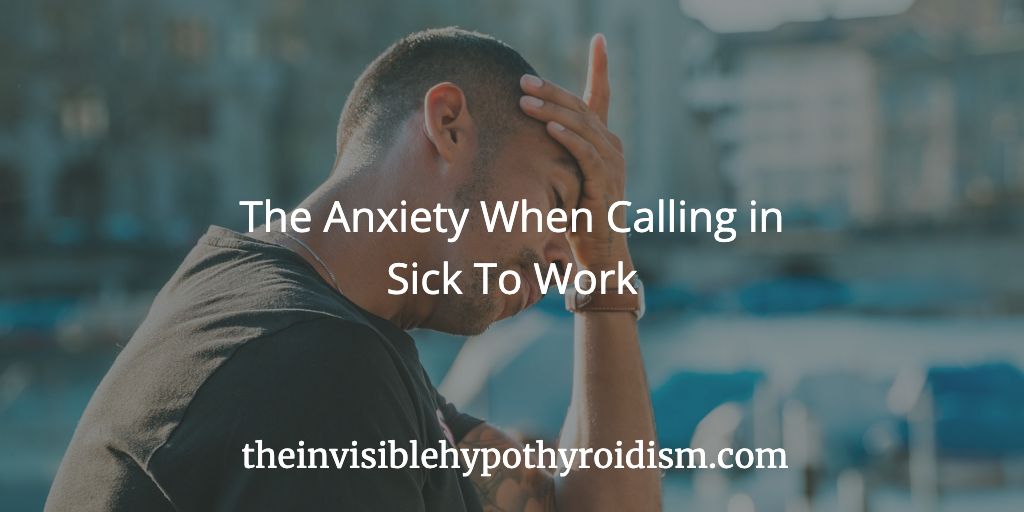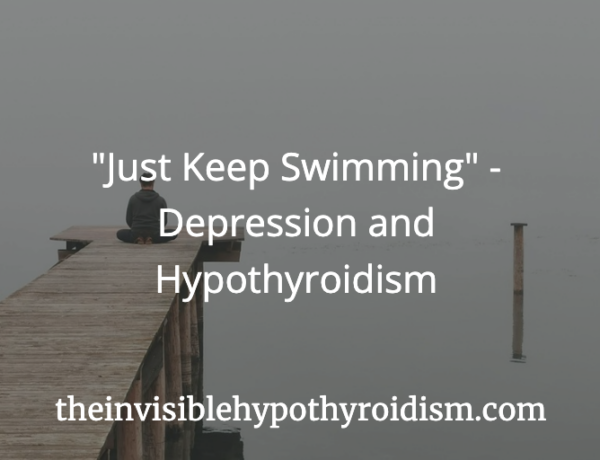For most people, calling in sick to work isn’t a common occurrence. Though, for those of us with chronic illness such as thyroid disease, a mental health condition or even disabilities, needing to take time off of work can happen more often than we’d like.
Please be aware that this is not a choice either. We’d prefer for our health to not get in the way.
I often know the night before a workday that I won’t be able to make it in to work the next morning. It’s not that I’ve already decided I’m not going in – it’s not that at all – but it’s because, over time, I’ve become attuned to recognising when my body is reaching a point of just needing to rest.
With my autoimmune thyroid condition, it can flare up or go through periods of better and worse health, so when it’s calling out for rest, I try to listen to it. When I don’t listen, it just gets progressively worse until I have to take longer off work.
The most often causes for me calling in sick to work include:
- having a bad nights sleep or not sleeping at all, which exacerbates my chronic fatigue, muscle pain and body weakness, but also brain fog. The effects are mental as well as physical.
- Muscle aches and pains being so bad I can’t move very far.
- An autoimmune/thyroid flare up, which means I’m in constant pain all day and wouldn’t manage to physically last the day at work, even sat at a desk, but would also mentally find it extremely difficult to concentrate enough to get anything done. During a flare, I would also worry that I was missing things out or making mistakes due to the effects on my brain function. The level of accuracy in my work – if I managed to get any work done at all – would be affected.
So, when I call my workplace to let them know that I won’t be coming in, please believe me when I say that I hate it.
I hate the fear of judgement they may make that I am off more often than everyone else in the office. I fear the sense of failure that I inevitably battle with after making that call and the guilt for taking a day to rest. I hate basically feeling as I’ve ‘given in’ and am weak. I hate the control my health conditions have over me.
There’s also the anxiety that comes with it.
Once I’ve informed my manager that I won’t be at work, I feel a huge sense of relief, but it takes a lot for me to get there.
There’s usually a bargaining phase, where I realise that I’m not well enough to leave the house or possibly even my bed, but I don’t want to make the call I’m so anxious about. “I could work today, Maybe I’ll be OK once I leave the house, Maybe I’m just overthinking this.” I tell myself as I try to think of reasons to still force myself to leave the house and go to work, despite feeling like death. I have forced myself to go in to work on bad days before and paid the price.
I hate that confrontation a phone call brings. I would much prefer to send an email and in the past have done. However, not all workplaces or managers accept this when calling in sick and they can insist that you physically call in and inform them of your absence over the phone.
For someone with anxiety disorder, a mental health condition that makes you overthink everything, over worry and over obsess, a phone call can be petrifying. Add in to that that you’re basically letting someone down, that you’re telling them you can’t come in to do the job you’re being paid to do, are expected to do and need to do to pay your bills, and it’s the ideal anxiety cocktail.
As I sit on the edge of the bed and imagine what might happen after I make that phone call, a thousand scenarios play out. My boss could ask me for more detail so I bumble through my symptoms and ramble on and then they don’t believe me. What if people talk about me behind my back after I’ve hung up, mocking me or insinuating that I’m lying? What if they moan that I’m not pulling my weight? What if I go in to work tomorrow and get taken aside, basically told off for not doing my work and patronisingly scolded? Over something I can’t help, too. What if what if what if.
Most of this is highly unlikely, but what if. And that’s the nature of anxiety; it’s not rational. The very definition of anxiety is irrational, obsessive worrying.
So I’m sat on the edge of the bed, feeling very unwell from my physical health conditions, but now I’m anxious on top, palms clammy, heart pounding and feeling faint. The world is opening up and preparing to swallow me whole. I feel out of control.
All I have to do is make one quick call, give a simple explanation and that’s it. They can’t discipline me for my health conditions, mental or physical, that would be discrimination – but it doesn’t matter to anxiety. This beast has run away with my thoughts.
So, do I make the phone call, excuse myself from work for the day and rest up, anxiously waiting to go back in tomorrow (hopefully, if I’m well enough) or do I push the anxiety down into the pit of my stomach and drag myself into work for a hard day of trying to work despite not being fit to?
Have you ever faced this dilemma?
Read my other posts about working and employment:
What You Don’t Realise When I’m at Home with a Thyroid Flare Up
The Difficulties of Working with Hypothyroidism
I Worry That Brain Fog Makes Me Look Incompetent at Work
Some Days You Just Have To Admit Defeat
Please remember that if you’re a thyroid patient living with poor mental health or lingering physical symptoms, that you don’t have to live this way. To address why you may still be feeling unwell (often despite being on thyroid medication too), please see this article and go through each suggestion, putting your thyroid jigsaw back together.
You can click on the hyperlinks in the above post to learn more and see references to information given.





